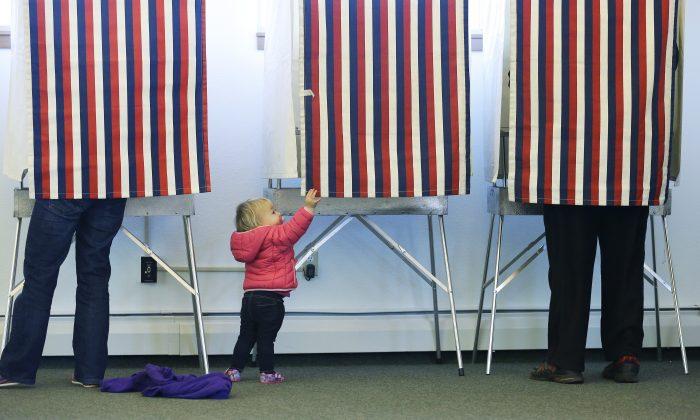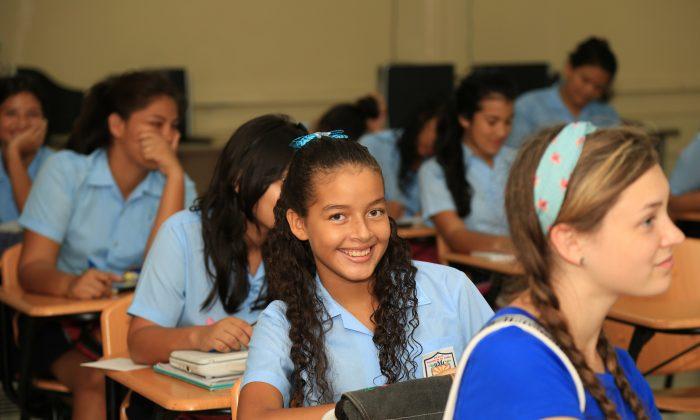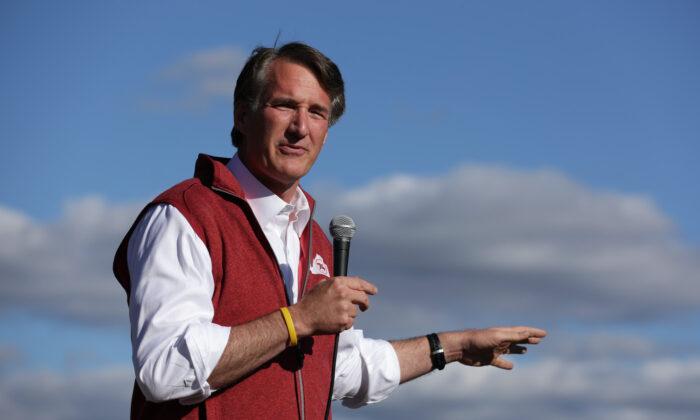Proponents of ranked choice voting (RCV) say it gives voters more choices and decreases campaign attacks because candidates are trying to appeal to a broader base.
It’s one thing to rank five candidates on one ballot, but when there are five candidates for multiple races on one ballot, it raises significant issues, Mr. Snead said.
“You’re making voting more complex by increasing the informational burden in order to be able to participate because now you don’t just have to know about one or two candidates—the major party candidates in the election—now you have to know about four or five candidates,” Mr. Snead told The Epoch Times.
Voters must then weigh each candidate and their platforms against one another and come up with ways to rank them, he added.
If one candidate gets at least 51 percent in the first round of the votes, he or she wins. But if no one gets a majority, then the candidate with the fewest votes is eliminated and voters who ranked that candidate as their first choice will have their votes counted for their 2nd choice. This process continues until a winner gets 51 percent or more of the votes.
Will Mantell is a spokesperson for FairVote, an organization that promotes RCV. He said Americans are used to ranking and find it easy to do.
“It’s no surprise that everywhere ranked choice voting is used, voters across all demographic groups understand it and like it. For example, 95 percent of New York City voters, 92 percent of Minneapolis voters, and 85 percent of Alaska voters say that ranking candidates is simple,” Mr. Mantell told The Epoch Times in an email.
To Mr. Mantell’s point, 74 percent of New York City voters backed a referendum to implement ranked choice voting in 2019.
But Mr. Snead is skeptical.
“Choosing candidates for office is different than choosing flavors of ice cream,“ he said. ”Everyone knows what chocolate is. Most people don’t know who five candidates are in a down-ballot race when they’ve never heard of most of those people before.”
Better for Primaries
Some Republicans believe that RCV can be useful in a primary or other nominating process, such as when Virginia Gov. Glenn Youngkin was running in 2021.“While some have legitimate concerns about using RCV in general elections when you have a two-party system, using it in a primary makes a lot of sense,” Saul Anuzis, former chairman of the Michigan GOP, told The Epoch Times in an emailed statement. “The purpose of primaries is to pick the strongest candidate with the broadest base of support. RCV helps do that.”
The Virginia Republican Party used RCV with paper ballots in its nominating convention for the 2021 election, which included the races for governor, lieutenant governor, and attorney general.
“Youngkin, Winsome Sears, and Jason Miyares swept statewide after winning RCV primaries in 2021. Previously, Republicans had failed to win a single statewide office since 2009,” said Mr. Mantell.
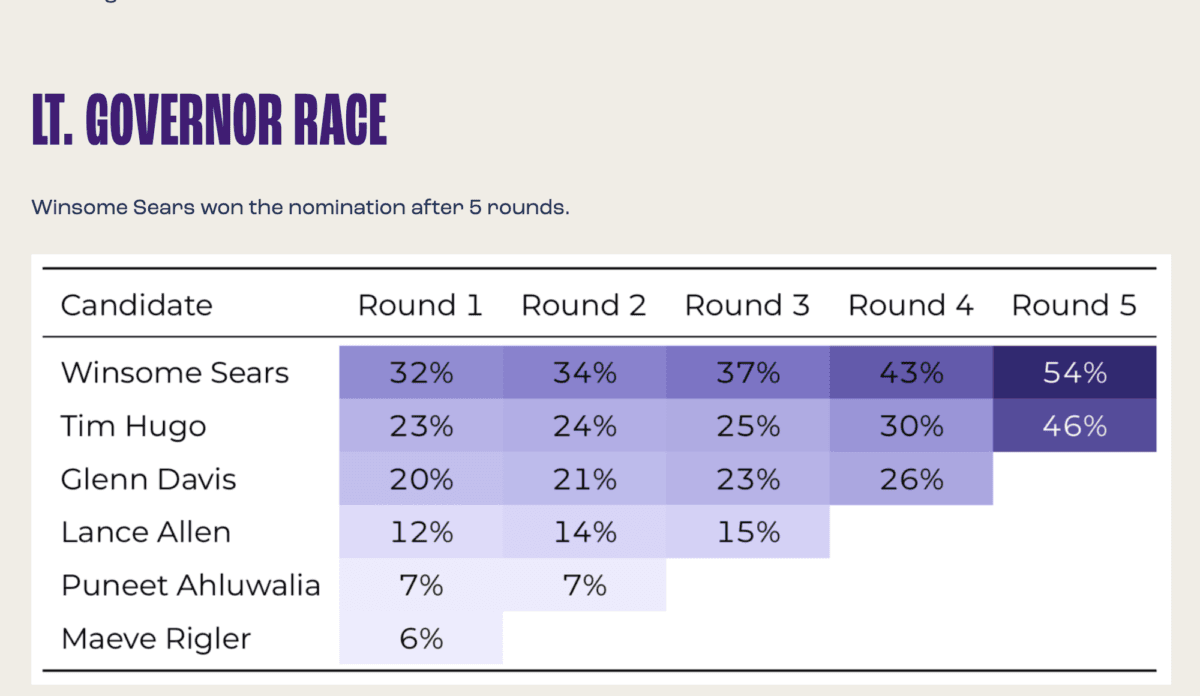
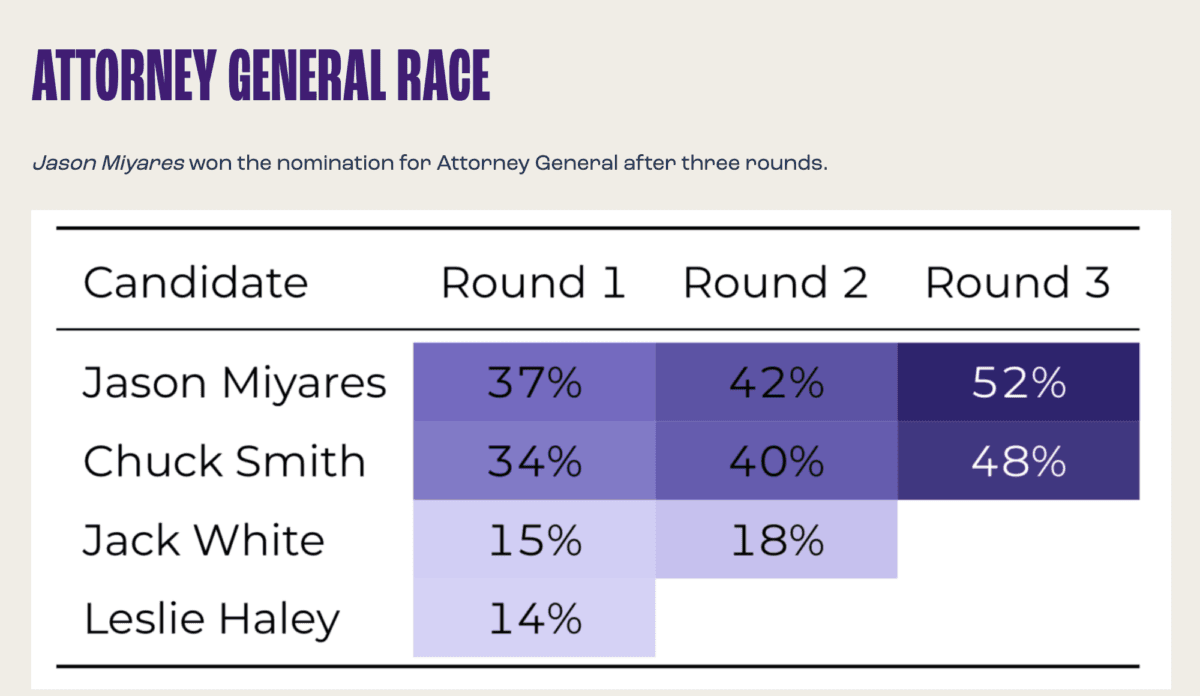
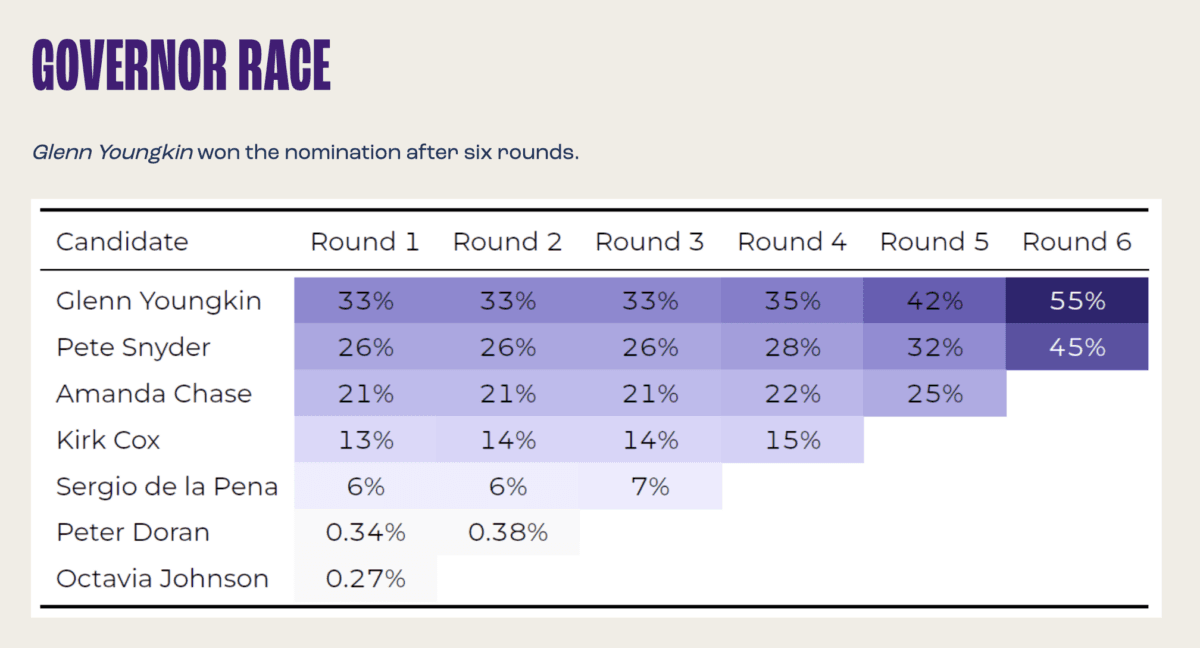
“The presidential primary offers a unique opportunity for our party to hear from our brightest stars and future leaders. Using RCV allows for candidates to stay in the race longer than usual,” said Mr. Anuzis.
FairVote claims RCV is better for democracy because it ensures the majority is heard.
FairVote
Mr. Mantell told The Epoch Times that his organization is nonpartisan, working to make elections fairer. However, Mr. Snead said FairVote is funded by the “who’s who” of left-wing donors.Some of FairVote’s donors include nongovernmental organizations such as Bridge Alliance, the Carnegie Corporation of New York, Democracy Fund, the Ford Foundation, the Jennifer and Jonathan Allan Soros Foundation, and the John D. and Catherine T. MacArthur Foundation.
FairVote, a major proponent of RCV, says it is not just supported by Democrats and progressives but by many Republicans as well.
“We’re proud to be supported by individuals and organizations from across the nation and across the political spectrum,” Mr. Mantell said.
Mr. Snead criticized activists for lobbying for a ballot measure to promote RCV in Idaho, despite the fact that the state Legislature passed a bill to ban RCV in April.
Mr. Snead said his organization promotes policies that make voting easy and cheating difficult and that allow only lawful U.S. citizens to vote.
Cost of Educating Voters
“In the short run, you also have to keep in mind that changing elections requires educated voters, and jurisdictions that are adopting RCV are spending enormous sums of money to educate voters on how to cast ballots,” Mr. Snead said.“Alaska, for instance, we don’t know exactly how much they spent, but I’ve heard figures of approximately $3 million to educate Alaskans on how to vote in a rank choice election. In New York City, approximately $15 million to educate voters,” Mr. Snead continued.
Maryland’s Department of Legislative Services estimated that implementing RCV for all of Montgomery County—the state’s most populous county—would cost $1.2 million the first year, and then about a quarter million in subsequent years.
FairVote claims that RCV increases civility by eliminating negative ad campaigns, as candidates have to appeal to a broader base to get their second-choice vote, but Mr. Snead said this doesn’t hold true because politicians get dark money groups to run these negative ads instead.
RCV Can Prolong Vote Count
Another concern about RCV is the time it takes to count ballots, which could lead to a lack of confidence in the results.Mr. Snead said states have adopted various policies over the last 20 years that have made voting more complex and more drawn out, with final tabulations taking weeks and even months.
During Alaska’s initial RCV election, the state’s Division of Elections opted to withhold preliminary round-by-round tallies during the 15-day post-election ballot return window, citing concerns about confusing the public, according to the Honest Elections Project.
In addition, the results of the June 22, 2021, Democrat primary for New York City mayor were not known for 14 days because of widespread absentee voting and the need to run multiple rounds of RCV tabulation.
Arlington County, Virginia, used RCV for the first time in June for its county board election.
Many respondents said they had a hard time understanding the tabulation process for RCV and think it would work better for a single election rather than the November general elections.
“I understood the voting process, but the tabulation process was a mess,” one survey respondent commented.
The Arlington County Board collected feedback about RCV from June 20 through July 5. Once all the feedback is collected and analyzed, the board will vote to decide if RCV will be used in the upcoming November general elections.
Catherine Gunsalus, director of state advocacy for Heritage Action, told Mr. Solomon that RCV presents challenges to hand recounts and makes the process dependent on a machine.
However, Mr. Mantell told The Epoch Times that RCV results can be hand counted.
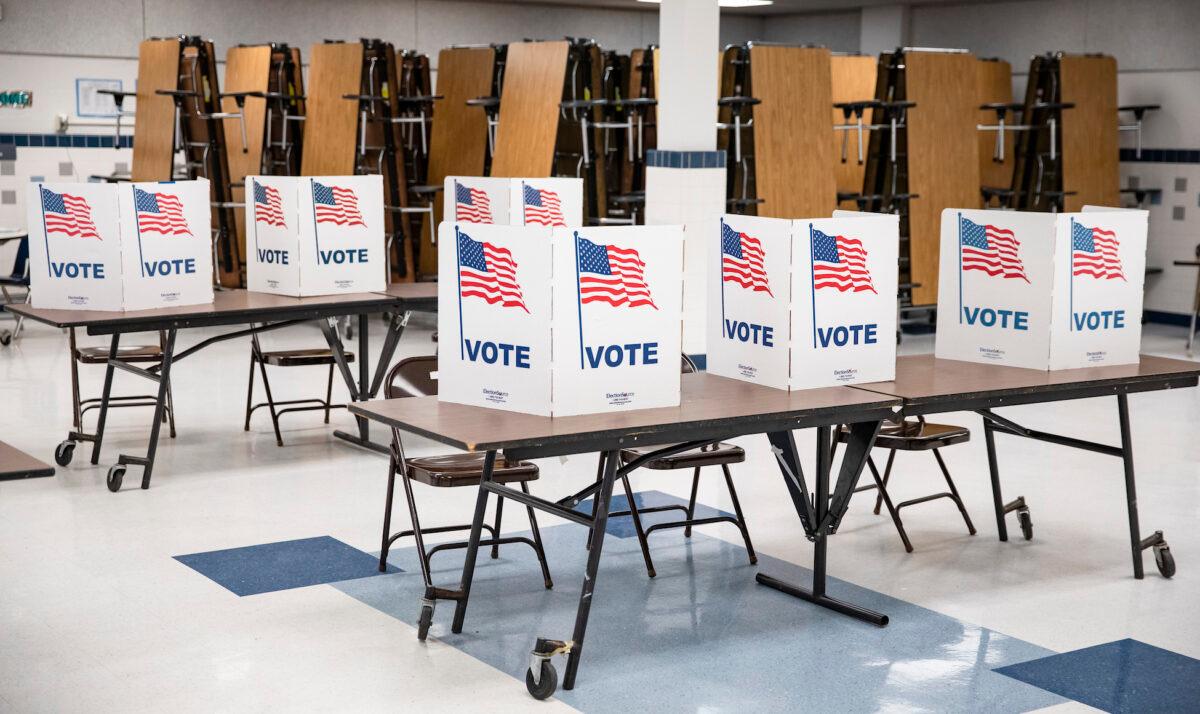
Both Parties Object
Mr. Anuzis said concerns over RCV are not a partisan issue.Both Democrats and Republicans have voiced concerns that RCV ballots could confuse or deter voters, possibly disenfranchising groups of people who aren’t familiar with enough of the candidates to rank them properly.
California Gov. Gavin Newsom, a progressive Democrat, vetoed a 2019 bill that would have brought RCV to California, saying the process led to greater confusion in the jurisdictions where it was used.
Hazel Dukes, president of the NAACP in New York, also criticized New York’s ranked choice voting system while urging the New York City Board of Elections to repeal the policy.
Many Democrats, including Vice President Kamala Harris, have said photo ID requirements make voting more complicated and will discourage voting, but RCV is far more complicated, said Trent England, executive director of Save Our States, during the June 28 program with Mr. Solomon.
“There was a disproportionate impact against minority voters. Particularly, black voters in New York were far more likely to be disenfranchised by the system,” Mr. England said, referring to the 2021 mayoral primary in New York City.
Another guest on Mr. Solomon’s program—Hans von Spakovsky, senior legal fellow at The Heritage Foundation—discussed the concept of “ballot exhaustion,” which can occur when a voter’s choices are not taken into consideration in the final rounds of tallying because they didn’t rank every candidate.
In New York City’s 2021 mayoral primary, voters were supposed to rank 10 candidates, Mr. von Spakovsky said.
“Because nobody got a majority of the vote, they had to go through eight rounds of vote counting and throwing out people’s ballots,“ he said. ”So many voters in New York did not rank all the candidates that by the time they got to the eighth round, they had thrown out 140,000 ballots.”
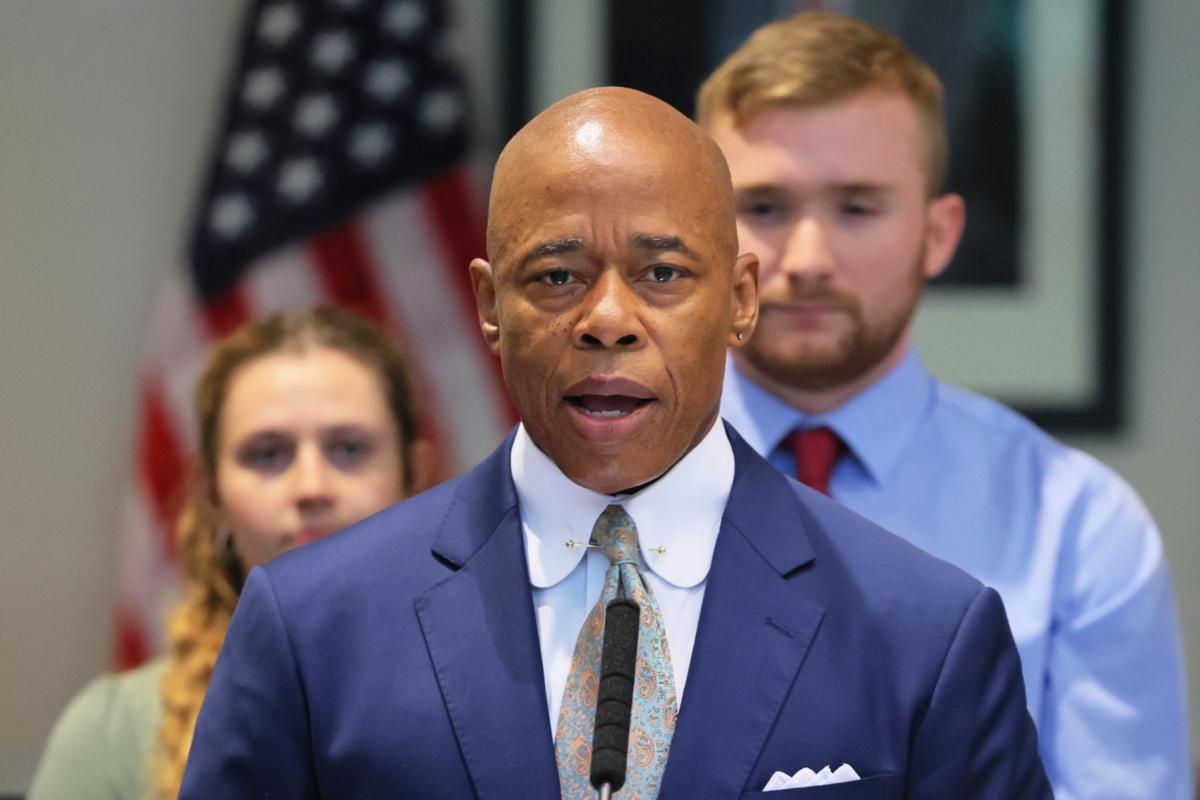
Jurisdictions Using RCV
Maine adopted RCV in 2016 for state and federal primaries. It was then used in 2018 for all congressional elections, with the state later broadening its use to presidential elections in 2020. Maine will use RCV for the 2024 presidential election.Alaska began using RCV in 2022, starting with a special election in August in which Mary Peltola, a Democrat, defeated former Alaska Gov. Sarah Palin, a Republican, and Nick Begich, also a Republican, for an open U.S. congressional seat.
In November, Nevada voters approved a ballot measure changing the state’s election system to a nonpartisan primary in which the top five candidates advance to a ranked choice general election.
Nevada will use RCV for all state and federal general elections except for presidential contests.
More than 50 cities use RCV in local elections, including Minneapolis, which used it for 22 city offices and some park board and board of taxation seats. New York City uses RCV for some primary and special elections. Santa Fe, New Mexico, has used RCV to determine mayoral, city council, and municipal judge elections since 2018.
More jurisdictions have tried to implement RCV in recent ballot initiatives, including 9 cities and the state of Nevada. The measure failed in two cases.
The United States is very divided over major issues, including how elections are run, but the tension cannot be eased with superficial solutions like RCV, Mr. Snead said.
“Arguing that you can change the way that people cast ballots in order to change the fundamental decisions that are all throughout our politics today is like saying you'll cure cancer by putting a Band-Aid on a scratch,” he said.
“It doesn’t make sense. There are deeper ideological and political concerns that we’re working through as a nation right now.”
